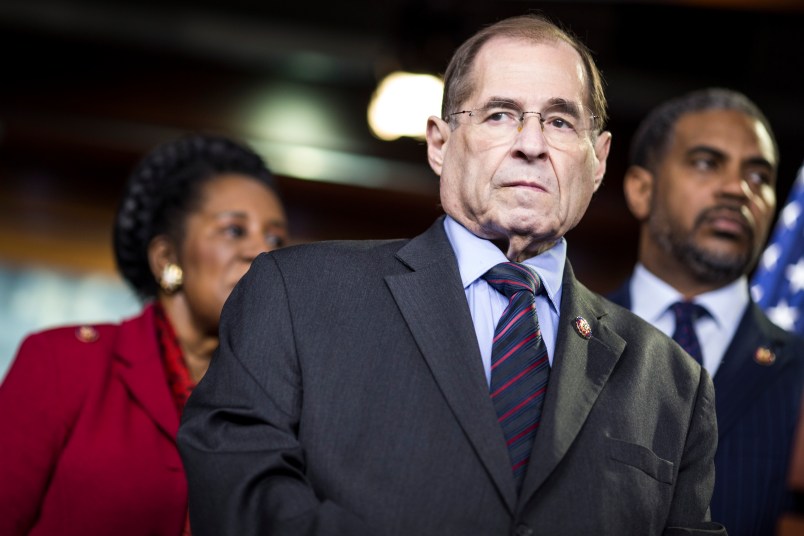The House next week will vote to give committee chairs the power to go straight to court to enforce subpoenas, eliminating the need for the full House to vote on contempt, according to a CNN report Thursday morning.
The language granting that power to committee chairs, as well as a measure allowing committees to hold officials in civil contempt without the support of the full House, will be included in a resolution to hold Attorney General Bill Barr and former White House counsel Don McGahn in contempt, House Majority Leader Steny Hoyer (D-MD) told reporters, per CNN.
House Judiciary Chair Jerry Nadler (D-NY) pushed for the new authority over the past few weeks, according to CNN.
If approved by the House, the new authority could increase the number of lawsuits over the administration’s refusal to comply with House committee subpoenas and could speed up potential enforcement of House demands for documents and testimony.
The Trump administration has consistently blocked House committee chairs from obtaining documents from and speaking to current and former White House officials from several House committees.







Again with the “next week?” I know you’re busy doing other things, but every day that goes by is one more day lost before the election, and one more day of looking weak to your base. Pick up the pace, Dems. At least pretend like you understand that we’re in crisis.
Methodical is the way to go. Please proceed.
Been tamping down a rising sense of despair lately. This helps. A little.
Wonderfully astute tactic, Dems. That should reduce from 181 days to 176 the time it takes for Trump’s Supreme Court lackeys to reject your lawsuit, thus somehow ensuring the orange scourge is out of our lives by Jan. 2021.
It is high time for this issue to get to the courts. Subpoenas are not invitations, they are commands. Certainly, the President can claim executive privilege regarding particular discussions and documents (especially those concerning foreign affairs and national security) and can assert executive immunity for witnesses who are current and very senior White house officials. But the President cannot prevent lawfully subpoenaed people from even appearing before Congressional committees, especially when those people are no longer working in the Executive Branch . Or, as the Supreme Court said in United States v. Bryan in 1950:
“A subpoena has never been treated as an invitation to a game of hare and hounds, in which the witness must testify only if cornered at the end of the chase. If that were the case, then, indeed, the great power of testimonial compulsion, so necessary to the effective functioning of courts and legislatures, would be a nullity. We have often iterated the importance of this public duty, which every person within the jurisdiction of the Government is bound to perform when properly summoned.”